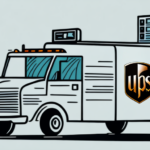Understanding the UPS Chargeback for Worldwide Express Shipping
Companies that rely on shipping products through UPS Worldwide Express understand the critical importance of maintaining accurate and detailed information about their shipments. Even minor mistakes can lead to significant problems, including chargebacks. This article delves into what a UPS Chargeback is, why it occurs, and how businesses can effectively prevent them.
What is a UPS Chargeback?
A UPS Chargeback occurs when a delivery fails to meet the terms and conditions of UPS Worldwide Express Shipping. This can happen for various reasons, including incorrect shipping information, wrong delivery address, or incomplete customs documentation. When these issues arise, UPS charges the shipper a fee for the error, known as a chargeback.
UPS Chargebacks can be costly for shippers, ranging from a few dollars to hundreds of dollars per package. According to a 2023 report by UPS, the average chargeback per shipment is approximately $50, which can significantly impact businesses handling large volumes of shipments. Moreover, multiple chargebacks may lead UPS to terminate the shipper's account or impose additional fees, thereby affecting a business's operational capabilities.
To avoid UPS Chargebacks, shippers should ensure that all shipping information is accurate and complete, including the recipient's name, address, and contact information. Detailed customs documentation for international shipments and the use of UPS-approved packaging materials can also help prevent damage during transit.
How Does UPS Worldwide Express Shipping Work?
UPS Worldwide Express Shipping is a widely used service by companies globally to deliver their products promptly and reliably. Available in over 220 countries, it offers fast delivery times, precise tracking, and efficient customs clearance. Businesses benefit from faster delivery, enhancing customer satisfaction and loyalty.
A key feature of UPS Worldwide Express Shipping is its precise tracking system. Customers can track their packages in real-time from pickup to delivery, allowing companies to keep their customers informed about their shipment's status, fostering trust and reliability. According to a 2023 International Shipping Report, real-time tracking can increase customer satisfaction by up to 25%.
Additionally, the customs clearance services simplify the process of shipping internationally, saving companies time and money while ensuring timely and secure delivery. According to UPS, up to 15% of international shipments experience delays due to customs issues, making proper documentation vital.
The Importance of Accurate Shipping Information
When using UPS Worldwide Express, providing accurate and detailed shipment information is paramount. This includes the recipient's name and address, package type and weight, value of goods, and necessary customs documentation. Accurate information ensures timely delivery and minimizes issues that could result in UPS Chargebacks.
Moreover, accurate shipping information helps prevent potential security risks. Inaccurate or incomplete data can lead to delays in customs clearance, resulting in packages being held or returned to the sender. This not only causes frustration for both sender and recipient but can also lead to financial losses. According to a study by Logistics Management, data inaccuracies can increase shipping costs by up to 12%. By ensuring complete and accurate shipping details, companies can guarantee safe and efficient delivery of their packages.
Common Reasons for UPS Chargebacks
- Incorrect or incomplete shipping information: Errors in the recipient's name, address, or contact details can prevent successful delivery.
- Wrong delivery address: Shipping to an incorrect or non-existent address leads to delivery failures.
- Missing or incomplete customs documentation: Inadequate documentation can cause delays or rejection in international shipments.
- Damaged or lost packages: Mishandling or poor packaging can result in package damage or loss.
- Late delivery: Failing to deliver within the guaranteed timeframe may prompt customers to request refunds, leading to chargebacks.
These issues can significantly impact a business's bottom line by increasing costs and reducing customer satisfaction. According to UPS statistics, chargebacks account for approximately 3% of all shipments, translating to substantial cumulative costs for high-volume shippers.
How to Avoid UPS Chargebacks
The most effective way to avoid UPS Chargebacks is to provide accurate and detailed shipping information. This includes:
- Ensuring the recipient's full name and correct address.
- Checking for discrepancies or inconsistencies in the shipping details.
- Completing all necessary customs documentation accurately.
Additionally, companies should utilize UPS's integrated shipping solutions to automate the shipping process, thereby reducing the risk of human errors. Automation can decrease error rates by up to 30%, according to industry reports.
Proper packaging and labeling of shipments are also crucial. Using sturdy packaging materials that can withstand shipping rigors and clearly labeling packages with the recipient's address and tracking information ensures safe delivery. Correctly classifying shipments is essential, as misclassification can result in additional fees and chargebacks. By taking these measures, businesses can ensure timely and issue-free deliveries.
Key Differences Between UPS Worldwide Express and Other Shipping Options
While UPS Worldwide Express is a prominent shipping option, it offers several key differences compared to other services:
- Faster delivery times: UPS Worldwide Express provides expedited delivery, ensuring products reach customers quickly.
- Precise tracking: Real-time tracking enhances transparency and customer satisfaction.
- Superior customs clearance: Efficient customs processing minimizes delays in international shipments.
- Extensive global coverage: With coverage in over 220 countries and territories, UPS Worldwide Express is truly global.
- Exceptional customer service: Responsive support helps businesses address issues promptly.
These features make UPS Worldwide Express a preferred choice for businesses seeking reliable and efficient international shipping solutions.
What Happens After a UPS Chargeback?
When a UPS Chargeback occurs, the shipper is responsible for paying a fee to UPS to cover the error's cost. The fee can vary based on the error's nature and severity. Additionally, UPS may require the shipper to address the underlying issues that led to the chargeback, such as providing additional documentation or confirming the delivery address.
To prevent chargebacks, shippers should double-check all shipping information, ensure proper packaging and labeling, and utilize UPS's online tools for tracking shipments and receiving alerts about potential issues. These proactive measures help minimize the risk of chargebacks and avoid associated fees and penalties.
The Impact of Chargebacks on Your Business
UPS Chargebacks can significantly affect a business's financial health, especially if they occur frequently. Chargebacks can increase shipping costs, reduce profit margins, and lower customer satisfaction. In some cases, persistent chargebacks can lead to legal actions or damage the business's reputation in the marketplace.
To mitigate these impacts, businesses should:
- Ensure accurate labeling and packaging of all shipments.
- Use correct shipping addresses and label packages with accurate weight and dimensions.
- Provide clear and accurate product descriptions, including any limitations or restrictions.
These steps help reduce chargeback occurrences and maintain a positive market reputation. According to a study by Business Shipping Journal, effectively managing chargebacks can improve a company's net profit margin by up to 5%.
Best Practices for Managing UPS Worldwide Express Shipping and Chargebacks
- Use integrated shipping solutions to automate and streamline the shipping process, reducing human error.
- Regularly review shipping processes and procedures to identify and implement improvements.
- Train staff on the importance of accurate shipping information and chargeback prevention strategies.
- Leverage UPS's analytics tools to monitor chargeback trends and address root causes.
Tips for Streamlining Your Shipping Process to Avoid Chargebacks
- Implement software solutions that automate address validation, customs documentation, and package tracking.
- Establish clear shipping guidelines and procedures to ensure consistent adherence across all staff.
- Conduct regular audits of shipping data to identify and rectify errors proactively.
- Integrate customer feedback mechanisms to promptly address any delivery issues.
Understanding the Fine Print: Terms and Conditions of UPS Worldwide Express Shipping
Before utilizing UPS Worldwide Express Shipping, it's essential to thoroughly review and understand the service's terms and conditions. These outline specific requirements, including delivery times, weight limits, and customs documentation. Familiarity with these conditions helps businesses avoid chargebacks and ensure timely, issue-free deliveries.
For the most accurate and up-to-date information, consult the official UPS Worldwide Express Terms and Conditions.
The Role of Technology in Reducing Chargebacks with UPS Worldwide Express Shipping
Technology plays a pivotal role in minimizing chargebacks with UPS Worldwide Express Shipping. Advanced shipping software automates processes, reducing the likelihood of human errors. Features such as address validation, automated customs documentation, and real-time tracking ensure that shipments comply with UPS requirements.
Real-time shipment tracking allows businesses to address issues promptly, ensuring efficient shipping operations and fewer chargebacks. According to Tech Shipping, businesses that integrate advanced shipping technologies can reduce chargeback rates by up to 20%.
Case Studies: Real-Life Examples of Businesses Dealing with UPS Chargebacks for Worldwide Express Shipping
Numerous businesses have experienced UPS Chargebacks for Worldwide Express Shipping due to minor errors or omissions in shipping information. Reviewing these real-life examples can provide valuable lessons on avoiding similar issues. For instance, Company A reduced its chargeback rate by implementing automated address verification, while Company B improved documentation accuracy through staff training and revamped shipping protocols.
By learning from these cases, businesses can implement effective strategies to prevent chargebacks, enhancing their operational efficiency and customer satisfaction levels.
The Future of Global Shipping with UPS Worldwide Express: Trends and Predictions
The future of global shipping with UPS Worldwide Express looks promising. As technology advances, businesses can expect faster and more efficient shipping times, reduced chargebacks, and enhanced customer satisfaction. The growth of e-commerce and online shopping continues to drive demand for UPS's services, leading to further expansion and innovation in the years ahead.
Emerging trends such as the use of artificial intelligence for predictive logistics, increased focus on sustainability in packaging, and the integration of blockchain for enhanced shipment security are set to shape the future of global shipping.
Conclusion
UPS Worldwide Express is a crucial service for businesses aiming to deliver their products promptly and reliably. While chargebacks pose a significant challenge, businesses can mitigate them by providing accurate shipping information, leveraging integrated shipping solutions, and continuously refining shipping processes. By adopting these strategies, companies can reap the benefits of UPS Worldwide Express Shipping, including expedited delivery times and improved customer satisfaction.






















